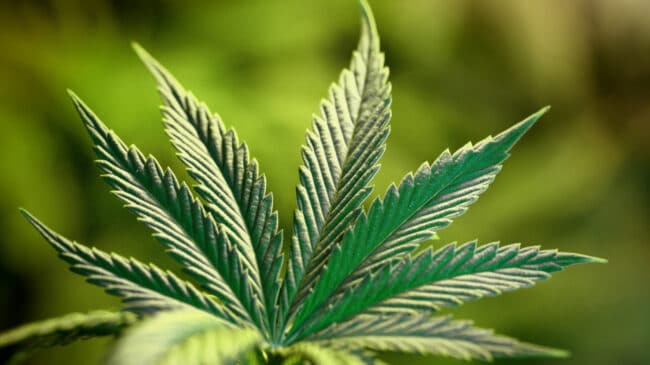In early March, Oklahoma voters took to the ballot box to decide whether their state would legalize recreational marijuana use. The ballot initiative would have taxed legal cannabis sales at 15 percent and given Oklahomans previously convicted of certain cannabis crimes a chance to clear their criminal records. But in a special election with a low turnout last month, over 60 percent of Oklahoma voters rejected State Question 820.
Despite the state’s conservative reputation and Republicans’ historic opposition to drug legalization, Oklahoma has cultivated the nation’s largest medical cannabis market since legalizing medical marijuana in 2018. Thanks to a light-touch approach to regulation, moderate sales tax, and low barriers to entry, Oklahoma boasts around 2,000 medical marijuana dispensaries and 6,000 grow operations. About 10 percent of the state’s residents are registered medical cannabis patients. The state has even been nicknamed “Tokelahoma.”
Why, then, did voters decline to expand a market that has already brought the state an economic boon and which would’ve, according to estimates, generated an additional $100 million in annual tax revenue for the state?
To start, the question was put to voters in a special election on March 7 and was the only question on the ballot. The date was selected by marijuana legalization opponent Gov. Kevin Stitt, despite the fact that Oklahomans were already scheduled to go to the polls in the months before and after to vote on school board races. Only an estimated 25 percent of Oklahomans voted on the cannabis question, likely as a result of the scheduling decision.
Another contributing factor may have been, ironically, how successful that medical market has already been. “I feel like we already have recreational marijuana … there’s a dispensary on every corner,” Oklahoma City Mayor David Holt told The New York Times prior to the vote.
Supporters of the measure say one primary goal was to reduce citizens’ encounters with law enforcement. “This wasn’t about legalizing marijuana. This was about keeping Oklahomans out of the criminal justice system,” senior Yes on 820 campaign adviser Ryan Kiesel told a crowd of supporters at a watch party. Despite the widespread access to medical cannabis in the state, Oklahoma continues to arrest around 4,500 people every year for cannabis possession.
Some who voted against Question 820 may have been worried about public health, safety, and crime. Arguments against the measure, spearheaded by the official opposition campaign that is unsubtly named Protect Our Kids, claimed that broader access to marijuana, even when restricted to adults, leads to increased use among youth and serves as a gateway to harder drugs.
“Every time you move from medical to legalization the increase in usage happens across all age groups including children,” former Oklahoma Mental Health Commissioner Terri White—who co-chaired the “No on 820” campaign along with former Gov. Frank Keating—told reporters days before the vote.
The research does not support White’s claim. Legalization of cannabis may, of course, result in increased adult use due to decreased stigma and fewer concerns about arrests. However, studies consistently show no significant increase in youth cannabis use following adult-use legalization. Moreover, access to a legal and well-regulated cannabis market for adults tends to decrease illicit markets’ profitability and size, reducing youth access to illegal dealers.
Similarly, research has disproved the gateway drug theory. Empirical analyses show that legalizing cannabis does not lead to greater use of stronger illicit drugs. Cannabis legalization is actually associated with decreases in the use of other drugs, like opioids.
Opponents of the ballot measure also suggested a connection between legalization and crime and stoked fears of foreign influence. In the lead-up to the vote, Oklahoma Attorney General Gentner Drummond asserted that “one of the biggest current threats to public safety is the presence of Chinese nationals and other elements of organized crime in our medical marijuana industry.”
This statement was undoubtedly intended to remind voters of the 2022 quadruple homicide at a cannabis farm northwest of Oklahoma City. The murders were committed by a former employee and Chinese national who took hostages and ultimately killed four farm employees who were also Chinese nationals.
Similarly, two weeks before the vote, the state’s Bureau of Narcotics announced that an investigation it conducted had linked “multiple” medical marijuana farms to organized crime, including crimes involving sex trafficking and prostitution.
Again, these narratives conflict with empirical data. Research indicates that the legalization of cannabis and the resulting increase in competition with illicit dealers tends to reduce the market share of organized crime. If Oklahoma’s medical marijuana market truly were rife with organized crime, then residents should blame regulatory failings because the existing law already requires regulators to evaluate the applicants for medical marijuana licensees and ensure they do not have criminal connections.
The good news for Oklahomans hoping to see legalized adult-use cannabis in their state is that the failure of State Question 820 is almost certainly not the end of the debate. Advocates are already working on plans to try again. Kiesel told supporters, “this is not the end of the effort to end prohibition in Oklahoma. This is halftime.”

